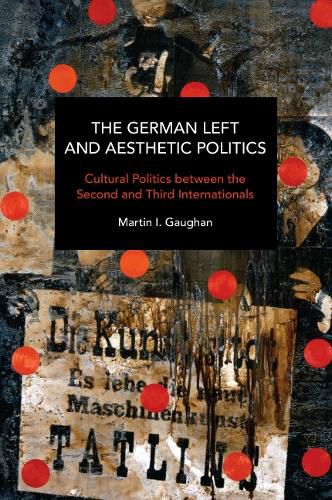Readings Newsletter
Become a Readings Member to make your shopping experience even easier.
Sign in or sign up for free!
You’re not far away from qualifying for FREE standard shipping within Australia
You’ve qualified for FREE standard shipping within Australia
The cart is loading…






The German Left and Aesthetic Politics examines the articulation of contending materialist aesthetic practices within the ideological fractures of the German Left between the Second and Third International. It is hinged on the major literary critical contributions of Franz Mehring, representative of the Second, and Karl Wittfogel and Georg Lukacs representing the Third. Both parties focussed on the bourgeois revolutionary cultural heritage and how it might provide examples for emulation. However, after the 1918 November Revolution, a politically radical avant-garde challenged that tradition. Figures and institutions including the Berlin Dadaists, Piscator’s proletarian theatre, and Bertolt Brecht, as well as dissident Marxist intellectuals like Karl Korsch and Fritz Sternberg, asked other questions and proposed other answers. Revisiting the contexts and contents of these exchanges allows the reader to understand the serious role allocated to cultural questions in constructing the third pillar of socialism, its integrative dimension.
$9.00 standard shipping within Australia
FREE standard shipping within Australia for orders over $100.00
Express & International shipping calculated at checkout
The German Left and Aesthetic Politics examines the articulation of contending materialist aesthetic practices within the ideological fractures of the German Left between the Second and Third International. It is hinged on the major literary critical contributions of Franz Mehring, representative of the Second, and Karl Wittfogel and Georg Lukacs representing the Third. Both parties focussed on the bourgeois revolutionary cultural heritage and how it might provide examples for emulation. However, after the 1918 November Revolution, a politically radical avant-garde challenged that tradition. Figures and institutions including the Berlin Dadaists, Piscator’s proletarian theatre, and Bertolt Brecht, as well as dissident Marxist intellectuals like Karl Korsch and Fritz Sternberg, asked other questions and proposed other answers. Revisiting the contexts and contents of these exchanges allows the reader to understand the serious role allocated to cultural questions in constructing the third pillar of socialism, its integrative dimension.